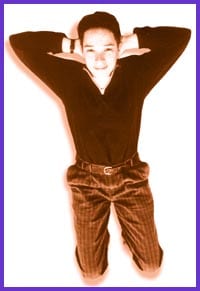Let the games begin. And the trash talk, too.
“I think that’s always part of the problem,” says Jennifer Myers, the catalyst behind Toronto’s renewed bid for the Gay Games.
“You do consultation, you talk to people, and then some go away with strong opinions, then rumours start circulating.”
If Myers anticipates unsportsman-like conduct, it’s because she’s been here before. She helped spearhead Toronto’s narrowly-defeated bid for the millennium’s first Gay Games when it was awarded to Sydney, Australia for 2002.
Toronto’s second-place showing should have made organizers confident about winning 2006. But the controversy from the last bid, where stakeholders complained they were being kept in the dark and where emergency meetings were the order of the day, has prompted Myers and the bid committee to retool.
This time, Myers says, talks with the community must start before the request goes in and have to carry on all the way through in order to get and keep queer jocks onside.
“Unless we have community support, there’s absolutely no way that it will go anywhere,” she says.
“At one of our very first meetings we have to say this is how our
community consultation will work and talk to people. If people seem fine with it, that’s what we’ll push ahead.
“We’re trying to have everything done up front, so people know when the community consultation is going to occur and know the process. So, if anything comes up where people are enraged and they want to talk about it, they know when the opportunities are.”
Myers says Gay Games volunteers did their best last time around.
Three community meetings were held over eight months, advertised by flyers in store windows. Calls were put to sport groups, community organizations and other stakeholders.
Attendance averaged between 50 and 60 per session at the 519 Church Street Community Centre.
Still, volunteers were dogged by criticisms that they weren’t giving folks much of a say. And poor communication is one of the only criticisms Myers will accept.
“The one concern that kept coming up was about communication with the community,” Myers says. “That was probably about the only real one, and accountability issues around that.”
At all the meetings, Myers counts only “one or two” as adamantly
opposed, so there was never much thought of throwing in the towel.
“Everyone else in the room was quite supportive,” she claims. “We made it very clear that because of a number of circumstances that occurred within a very short time frame, that we had to focus on particular issues and had to do the best with what we had. We made that clear from the very beginning and I guess that just didn’t suit some people.”
There were worries that a successful bid, with estimated economic spin-offs in the $80-million range, would detract community money (hundreds of thousands would be needed in donations and in-kind gifts) and attention from more serious political issues.
Sports enthusiast and local activist Joe Clark accused the bid committee of being obsessed with political correctness. Clark was sour about matters such as goals for gender parity and day care. He made his opinions known far and wide.
Myers, an intramural sports specialist at Ryerson Polytechnic University, says it’s impossible to respond to that sort of thing.
“The most difficult part of consultation is finding the balance – how much is enough and how much is too much. For some people, we will never be able to do enough. That’s something you just have to deal with.”
Others are more viciously practical in their analysis.
One person contacted for this story says: “From my point of view, it’s optics. You have to be seen as allowing community input. What you do with that input is totally arbitrary, but you’ve allowed the cranks to let off some steam, and hopefully avoid dissension later on.”
He won’t let his name be used.
Myers says the primary constraint the bid committee faces is money.
The committee continues chipping away at a small debt of about $12,000, and it needs to deal with its own finances as much as those of the games.
Previous host cities have absorbed significant losses. Toronto needs big people and big cash.
Myers and company are working on it.
“It’s just years before the bid actually goes in. To involve people at this point is kind of a real painstaking process. Focus groups are really key for us to start expanding the people that we’re in contact with and trying to get the word out.”
As for the Toronto’s bid for the traditional 2008 games, Myers is playing a “small role,” but she doesn’t think the city’s success or failure will be of much consequence to gay Olympians.
“There is talk on a low key level, that if we get it, then we’ll look at possibilities of trying out some facilities. They want to have facilities done early, like Australia did. But there really isn’t much there for us if the facilities aren’t done.”

 Why you can trust Xtra
Why you can trust Xtra


